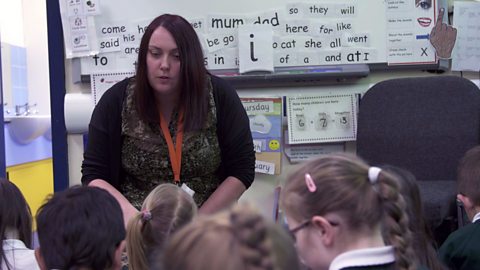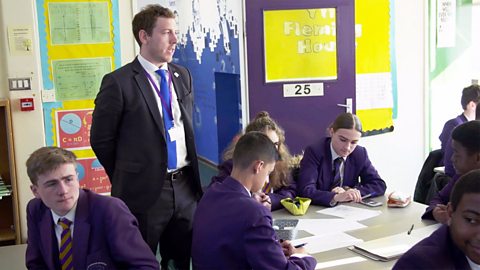
The term ‚Äėresilience‚Äô has developed a mixed reputation of late in UK education, and understandably so.
It can be manipulated as a concept to translate as ‚Äėput up and shut up‚Äô, don‚Äôt smile ‚Äėtil Christmas, ‚Äėif you think you‚Äôre tired NOW‚Äô or ‚Äėof course you needed to stay up until 3 a.m working on that marking pile‚Äô.
None of these is reasonable and to put up with any of them is more than likely to mean a career in teaching rather shorter than one might have imagined.
To be clear on what I mean by the term, it’s about ensuring the challenges we face daily, hourly, in teaching feed directly into our personal and professional growth.
It‚Äôs about taking a deep breath and taking constructive criticism as a way of moving forward; about depersonalising the professional. It‚Äôs about choosing your battles ‚Äď knowing when red lines have been crossed, what to do about it, and when to zip up your bubble, keep your head down and get on with the task in hand.
In any job, there are elements we each relish less than others.
But, like it or not, data is here to stay; accountability systems are, and should be, here to ensure our young people get the best possible detail. We deserve to be supported, but we are also paid to do a job which is arguably the most important one there is, for we are creating the doctors, artists, lawyers and teachers of the future.
It is in this spirit that I offer my six top tips for developing what we’ll call the zebra stripes of wisdom and experience rather than the rhino skin of hard indifference.

1 ‚Äď This too will pass
This is a mantra taken directly from the world of parenting, and it is both poignant and reassuring.
That unit of study which just isn’t working with Year 9 will be over soon. If it’s making you and them sad, ditch it. Young people are remarkably forgiving.
Invariably, that child who has given you grief will be the first to be there with a gushing leaving card when you finally move on from the school; the one whose references you’ll be writing in ten years’ time will still deny the time they called you a bad word in the classroom after the umpteenth request to remove their gum.
2 - Laugh or cry
From a car-crash of a lesson to dismal feedback from an observation, first bear in mind that anyone who says they haven’t been there is probably telling you porkies.
Give yourself time to lick your wounds then, with some distance, try to find the funny side.
The lesson when all the home-drawn, laminated cards lovingly crafted through the night ended up scattered on the floor with a learning value of nil, wasn’t much fun at the time, but taught me an important lesson in never spending longer preparing something than it is going to take to deliver.
3 - It’s all about perspective
In our climate of high-stakes accountability, it can feel as if we ourselves are taking our GCSEs 60 times over, year after year, with the future success and happiness of a generation of young people entirely in our hands.
But the reality is that we’ll get onto our train or into our car at the end of the day and go back to our warm home with enough to eat and loved ones. We are the adults here.
We‚Äôve done our qualifications. We‚Äôve got our basic comforts. We are, in the words of the marvellous Bill Rogers, ‚Äėalways the winners, even if it doesn‚Äôt feel like it at the time‚Äô.
4 - Good enough
Another mantra taken from parenthood; 'Beware of the ‚ÄėO‚Äô word'.
Outstanding is something we naturally aspire to. I too have sobbed tears of rage and injustice at being graded ‚Äėjust‚Äô good AGAIN!
But our students don’t need a singing and dancing magician every lesson.
Solidly good over time is better than sporadic bells and whistles.
5 - When is it time for a change?
I didn’t know what my educational values were until I worked in a climate in which they were challenged day after day, hour after hour.
First it made me stressed. Then it made me deeply unhappy. Then it made me ill. Know yourself and know your red lines.
If you’ve been waking up for more than three weeks in a row feeling sick at the prospect of going to work, it may be that your moral compass is all out of whack.
Taking the decision to find a new school to work at is a huge and difficult one, but it’s worth remembering that there are hundreds of thousands of young people who could potentially benefit from your skills
6 - You are not alone
And finally, remember this: the biggest mantra of them all; 'You are not alone.'
You are NEVER alone, in the triumphs or the failures. Reach out. Know your safe people and safe spaces. Talk. Cry. Laugh. Grow. And remember, the profession is lucky to have you.
If you’re a teacher in need of support, call free and confidential 24/7 emotional support helpline on 08000 562 561.
The 91»»Ī¨ is not responsible for the content of external websites. By clicking the link to access the external website you will be redirected to a site controlled by Education Support. Please note that the 91»»Ī¨ is not the data controller of the personal data you enter into the external website and it is not responsible for the services provided by any external organisation. When using an external website, you are subject to their Terms and Conditions and Privacy Policy.

How do I stop feeling like a fraud? document
A look at the condition called "imposter phenomenon" and how teachers are one of the groups that suffer with it.

Teachers open up about mental health. video
‚ÄúI felt I was not good enough to be a teacher...‚ÄĚ Teachers share their approach to managing their mental wellbeing in this short film.

Teacher tips on supporting students through exams. video
In this short film two teachers offer their top tips and advice on supporting students through exams.
